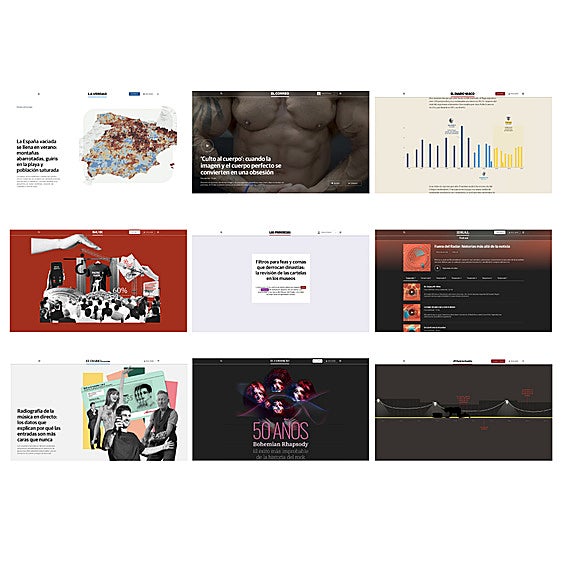Equality: 'Women still experience impostor syndrome'
It is estimated that in 2024 there were around 3,000 professional life and business coaches in Spain and two out of three were women
Jennie Rhodes
Malaaga
Friday, 7 March 2025, 10:10
The number of life and business coaches has proliferated in Spain in recent years. While in 2020 it was estimated that there were around 800 coaches in the country, according to a recent study carried out by COPE radio station, although there are no official figures, the study estimated that in 2024 there were around 3,000, and two out of every three are women. The typical client according to the study is between 35 and 44 years of age.
The UK's national careers service website defines life coaches as professionals who "support and encourage people to help them make informed decisions in their working and personal lives."
In fact the University of Malaga even offers a Masters in personal and group coaching with the objective to equip students "with the personal and skills of a professional coach".
And it's not just people who are looking for the next step up in their professional lives who have turned to coaches to help them. During the 2024 US election campaign, Kamala Harris enlisted the help of Karen Dunn, a high-profile lawyer who is said to have helped every Democratic presidential candidate since 2008 including Barack Obama and Hillary Clinton.
But why are two thirds of coaches women? "It seems like everyone's a "coach these days, which says a lot about how difficult work and society are for women and mothers," wrote Katherine Goldstein in the Huffpost in 2022.
She asked, "Why is coaching having such a moment among women?" And argued that "women, especially mothers, have borne the brunt of pandemic caregiving, which in turn disrupted their careers, leading many to seek less-conventional livelihoods".
Adriana Caliri, 56, is originally from Italy but has lived in Mijas for five years and is the founder of Renaissance CEC, a leadership coaching company. She spent over 20 years as an executive with the sports brand Nike and says that she "felt stuck" while her male colleagues advanced.
But after receiving coaching while still working at the company she says she "gained clarity" which eventually led her to wanting to help other women in similar situations to her.
Systematic challenges
While many individuals and indeed businesses seek the assistance of coaches, the needs of men and women, according to professionals in the sector, continue to vary.
According to Caliri "Women are often conditioned to shrink themselves to fit in, especially in high-stakes environments. When promoted they feel they must prove their worth. Men, on the other hand, tend to step into the role with confidence."
Michele Collison, 47, who runs MindShift Theory from Nerja where she has lived for four years, echoes Adriana's words and agrees that despite shifts in society, "systemic challenges remain".
Collison says, "Women still face wage gaps, limited access to leadership roles, and self-doubt stemming from societal conditioning. Women often struggle with impostor syndrome, second-guessing their own abilities despite being highly qualified."
More and more women are occupying high level professional positions, but the so-called glass ceiling still exists. Gemma Lea Edelman, 43, a social coach based in Cómpeta in the Axarquía, argues that while "things have improved" women "still face systemic barriers; pay gaps, fewer leadership opportunities, and being judged more harshly for the same behaviours that are praised in men." Although she does believe that while "the glass ceiling is still there, at least now it's got a few cracks in it".
For Natalia Edelmann, founder of Luxe Lifestyle Collective, through which she helps high-achieving women in business, the glass ceiling still exists and women are "still underrepresented in leadership".
She agrees that they "often feel they need to prove themselves more than men". However, the biggest ceiling, she says, is "often internal" and is a mixture of self-doubt, impostor syndrome and fear of being 'too much'".
Power structures
All four professionals refer to impostor syndrome as one of the major setbacks for professional women, still today. The definition of the term according to the Oxford English Dictionary is, "The persistent inability to believe that one's success is deserved or has been legitimately achieved as a result of one's own efforts or skills."
So why do women still feel that they are impostors in a male-dominated world? Going back to the glass ceiling debate, Collison, who is originally from South Africa, but has also lived in the UK, USA and Switzerland, argues that this feeling "isn't about a lack of expertise or capability on the part of women. Instead, it is a systemic issue upheld by outdated beliefs, unconscious biases, and long-standing power structures that continue to favour men in leadership roles".
Gemma Lea Edelman, who is from the UK but has lived in Spain since 2005, stresses that "women shouldn't have to work twice as hard to be taken seriously" and says that this is where coaching specifically aimed at women can help: "As women, we juggle so many roles; career, family, relationships, while battling the pressure to be everything to everyone. Coaching helps us set boundaries, build confidence and challenge the social conditioning that's convinced us we should always come last."
Natalia Edelmann was born in Portugal to a Swiss father and an Egyptian mother but raised in Canada. She has lived in different places around the world and says, "My multicultural background influences my work, allowing me to guide women from different cultures and industries toward success and fulfillment." She says that while the world has improved for women in business, "more conversations about wealth and leadership" are needed and that "women need to own their success unapologetically".
Gemma sums up the work that still needs to be done as "changing the narrative". She says that "success shouldn't come at the cost of wellbeing".
In her experience Adriana believes change will come "by continuing to challenge old paradigms, supporting one another, and stepping into leadership with confidence".
Michele points out that organisations "are becoming more aware of these disparities and are implementing diversity, equity, and inclusion initiatives to address them". However, for her real change requires continued advocacy, systemic shifts, and, most importantly, women supporting other women in breaking through these barriers".
"The glass ceiling may still be there, but with persistence, awareness, and collective action, we can continue to shatter it," Michele concludes.



